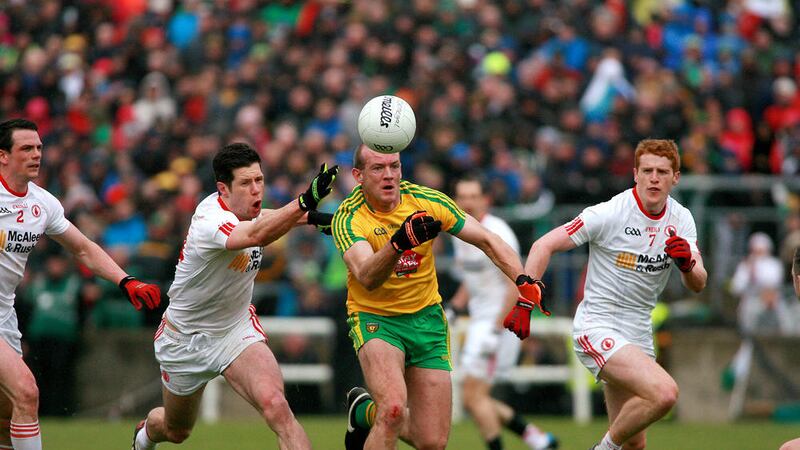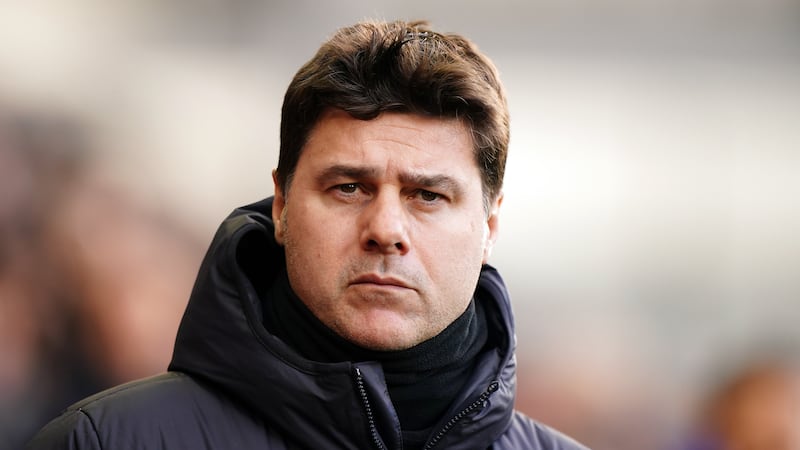THE worst example of ‘sledging’ occurred on a soccer pitch in north Belfast in the early 1990s. The religious make-up of our club was predominantly Catholic.
The make-up of the club we were playing against was predominantly Protestant.
The Northern Amateur Football League was a tough place to play your football and certainly wasn’t for the feint-hearted.
It seemed you had to cut a player in half for the referee to even consider pulling out a yellow card. Generally, though, the games were hard and fair.
Like in many parts of the north, the early 90s were ugly times.
Sectarian murder gangs still crawled the streets of north Belfast.
On the morning of this particular game a young Catholic man was shot dead while going to work.
Some of my team-mates knew the victim.
The game itself was a typically feisty affair. The usual banter ensued.
“You’re rubbish number seven,” shouted one of our supporters on the sideline.
What followed was the worst thing that has been uttered on a football pitch.
Number seven of the opposition made a crude reference to the slaying of the young Catholic man.
Several of our supporters – including committee members – ran onto the pitch in a bid to get their hands on number seven.
Somehow a riot between 22 players, substitutes and supporters was averted. The opposition had the decency and wisdom to substitute number seven and play eventually resumed.
I would guess those at the game don’t remember the final result because nobody cared.
Afterwards, the opposition club apologised profusely for the sectarian remark that was made by one of their players.
A line had been crossed that afternoon and the game was lowered as a consequence.
'Sledging' is part of the sanitised vernacular of the GAA.
'Sledging' is a fancy term for slabbering to an opponent about their mother, their father, their family members, their girlfriend, their religion, the colour of their skin, their personal problems.
To 'sledge' properly is to do your research on your opponent.
To 'sledge' properly is to aim with the lowest verbal blow.
To ‘sledge’ properly is to lower yourself and what your team stands for.
To ‘sledge’ properly doesn’t make you any more competitive.
To ‘sledge’ is to lack class.
In Ballybofey last Sunday lines were undoubtedly crossed.
In an interview given to the media on Monday, Tyrone’s Sean Cavanagh referred to some of the stuff that was said to one of his team-mates and how some Donegal players goaded the player about his personal problems.
In fairness to Cavanagh, he acknowledged that Tyrone weren’t lilywhite when it came to ‘sledging’.
The truth was there was no moral high ground in Ballybofey because none existed.
This crass notion that anything goes between the white lines of a football pitch and that slabbering to an opponent about his personal problems is part of the game is nonsense.
Some of those who are reluctant to condemn the practice believe they have a deeper understanding of the game and all its ugly appendages, and that the rest of us are a bunch of wishy-washy sporting liberals.
Of course, what the unsightly television images from Seán MacCumhaill Park singularly served to do was perpetuate the negative stereotype of Ulster football.
The line could be peddled that ‘sledging’ was most definitely an Ulster phenomenon.
It allowed talking heads on every two-bit podcast around the country to shake their heads at those God-awful ‘Nordies’, while patting themselves on the back that Connacht, Leinster and Munster are free from this terrible scourge.
The slabbering and the pulling and dragging that went on in Ballybofey will be held up as a tawdry example of the inherent ills of Ulster football. Meanwhile, the positive aspects of the game will be swallowed up.
Those who are reluctant to turn a blind eye to ‘sledging’ can hide behind their phony sense of manliness and warped strategy of trying to gain an inch in a Championship game but it’s time the practice was addressed in a serious way.
Referees cannot be expected to police ‘sledging’ so it is up to coaches and players to mind their behaviour.
It would be safe to assume that the vast majority of coaches don’t encourage ‘sledging’.
But if they discouraged it, the practice would stop in the morning.
Players who engage in ‘sledging’ should care about their image and how they’re portrayed when the camera inevitably pans on them.
Managers should care more about how their team is portrayed because there is no higher accolade for a champion to be universally admired and respected.
In soccer, there is endless debate over who’s the better player: Lionel Messi and Cristiano Ronaldo?
Regardless of where people stand on this interminable discussion, the vast majority of people have a greater admiration for the way in which Messi conducts himself on the field compared to Ronaldo.
The little Argentine rarely dives. He rarely feigns injury. For the majority of the time he lets his feet do the talking for him and is a team player.
Ronaldo, on the other hand, dives regularly, feigns injury, gesticulates at team-mates and pouts his way through games.
Surely, good conduct has to count for something.
Sadly, some of the best players in Gaelic football are the biggest ‘sledgers’ in the game.
It would be a step forward if coaches and managers - excuse the pun - had a quiet word with them.
Otherwise, when these players are long retired the main archive of their careers will be pockmarked by the things they said to their opponents.
And with the benefit of age and hindsight each of them will squirm in their chairs.








